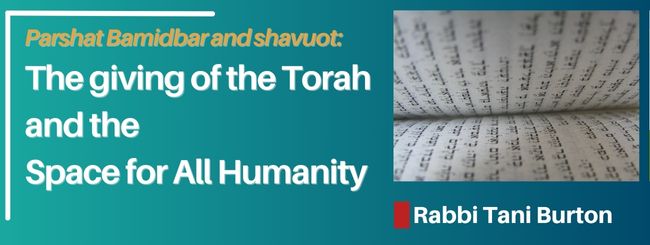בס”ד
Integrating Torah into one’s life through reflection and conversation can be an incredibly fun and engaging experience. It’s a journey of discovery, where ancient wisdom and timeless teachings come to life in our daily experiences. Through reflection, we have the opportunity to dive deep into the rich tapestry of Torah, extracting profound insights and lessons that resonate with our modern lives. The joy lies in the ‘aha’ moments, those instances when a Torah verse or story suddenly connects with our personal challenges, aspirations, and values. And when we engage in conversations about Torah with others, it becomes an interactive exploration, where diverse perspectives and interpretations enhance our understanding. These dialogues often spark excitement and intellectual curiosity, making the learning process both enjoyable and fulfilling. Torah becomes a vibrant and dynamic part of our lives, offering not just guidance but also a source of endless fascination, connection, and growth.
NOTE: Don’t feel obligated to go through every source or answer all the questions—unless you want to. Even one source, or one question will give you plenty of material for discussion and meditation. Enjoy this!
Some thoughts from the Parsha
“And the L-RD spoke to Moses in the wilderness of Sinai, in the Tent of Meeting…” (Numbers 1:1)
Shavuot commemorates one of the most singular events in human history: the Giving of the Torah at Mount Sinai. Unlike other spiritual moments that happen in quiet or to select individuals, this event was public, national, and unparalleled. It was not only the beginning of the covenant between G-d and the Jewish people—it was the moment when the Divine Will was revealed to mankind.
That Torah, given specifically to the Jewish nation, includes both particular commandments for the Jewish people and universal laws for all humanity—known as the Seven Noahide Laws.
This week’s Torah portion, Bamidbar, introduces the Israelites’ encampment around the Tabernacle, the portable sanctuary that carried G-d’s Presence through the desert. The tribe of Levi was tasked with guarding it, forming a buffer around the holiest space on Earth. Even Moses could not enter the Tabernacle whenever he wanted. This teaches us that reverence and order are necessary when approaching the Infinite.
Similarly, at Mount Sinai, boundaries were set. The people were warned not to approach the mountain, not because G-d wished to push them away, but because they were being prepared to receive something vast, holy, and world-changing.
For Noahides, it is important to understand: Shavuot marks a covenant between G-d and the Jewish people, a bond unlike any other. But it also marks the transmission of moral truth to the world, for within that Torah are the eternal principles that apply to all humanity. The same G-d who formed a nation at Sinai also revealed His will for how civilization should function—with justice, dignity, and the sanctity of life.
The Levites were not counted among the rest of the people, and their task was not to take center stage but to create space—to protect holiness, to allow it to flow. In a similar way, Noahides who honor G-d’s will in their lives become facilitators of holiness in the world. You do not need to possess the Torah in the same way as Israel to be a servant of G-d. Your role, too, is sacred.
Key Point for Reflection
Shavuot is not a universal religious holiday. It is a celebration of G-d’s covenant with Israel. But it is also the origin point for the moral order of the world. As a Noahide, you are living by the universal truth of the Torah—and helping to fulfill its vision for humanity.
Now, reflect on the following questions
- What does it mean to honor the Torah as a non-Jew?
- How can I deepen my commitment to the universal values revealed at Sinai without crossing the boundary into “creating a new religion”?
- In what ways can I become like the Levites—someone who helps create space for G-d’s presence in the world, not by being central, but by being faithful and supportive?
- How can awe and reverence help me approach my moral and spiritual life more seriously?
Shabbat Shalom!
Shabbat Shalom!
By Rabbi Tani Burton
If you want more questions for contemplation, SEE THE OTHER BLOGS FROM RABBI TANI BURTON ABOUT DE PARSHAT QUESTIONS
© Copyright, all rights reserved. If you enjoyed this article, we encourage you to distribute it further.
Our blogs may contain text/quotes/references/links that include copyright material of Mechon-Mamre.org, Aish.com, Sefaria.org, Chabad.org, and/or AskNoah.org, which we use in accordance with their policies.
